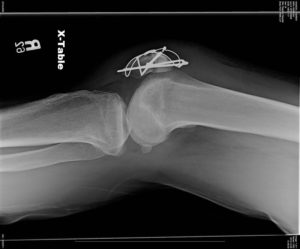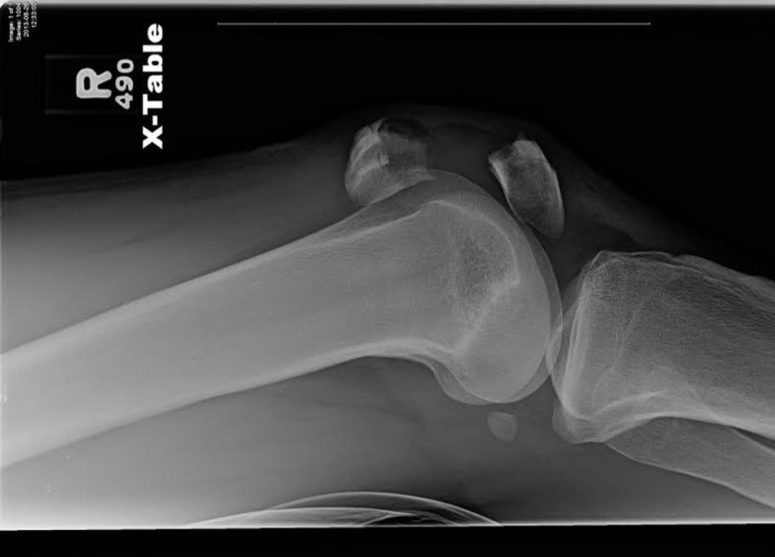Just barely over a year into my Jesuit life, I began my “cannonball experiment.” St. Ignatius Loyola’s conversion took place over long months of recovery after a cannonball shattered his leg. Unlike St. Ignatius, my shattered leg was the result of a full-speed collision with a wall during an overly-competitive racquetball game. My kneecap split cleanly in two, and each half rippled with fractures. “An impressive break,” as one of the doctors put it.
My shattered knee threw off all kinds of plans and schemes I had for that year. An immobilized leg forced me to be more sedentary for months, and I’m not great at sitting still.
A few years after recovery, I find myself forced into a similar sedentary state, although no bones were broken this time. Goodbyes are cannonballs too, and my heart is under attack.
***
As I walk onto a Manhattan-bound 4 train, my eyes feast on rarely-open seats. I want to fist bump someone in celebration of my good luck, but then I realize why these seats are open. In front of me is a man in his 30s dressed in stain-covered denim and stirring from a rough night. His bloodshot eyes peek out under half-closed eyelids. He rubs them with palms that are black with grime. The back of one hand is inked with an eye floating above a pyramid. I quickly recognize it as the image on the back of the one-dollar bill.
The train gets progressively more full with each stop and seats become too precious to leave vacant. The young man attempts to strike up a conversation with the lady sitting next to him. He asks her how much a hairdo like hers costs. She clearly doesn’t want to engage him, but he just keeps on talking.
“I got this ticket to Newark! Should I go to Newark? The dope-game is ridiculous! Bag’s at least three times cheaper there.”
She reaches into the backpack on her lap and shuts him out with earbuds. Though she can’t hear him, he apologizes. Then, he glances up and catches my eye.
“You probably think I’m crazy too, huh?”
“Nah, man. Just reading my book.”
“Sorry for the disturbance.”
“No need to apologize.”
I keep my eyes on him. He correctly interprets this as a sign that I’m open to conversation, and he takes me up on my silent offer. It’s mostly a monologue, and he mingles Newark with other topics. I’m only a few stops from my destination at this point so I interrupt him and ask about the tattoo on his hand. He pulls out a dollar bill from his jacket pocket.
“I thought I recognized it,” I say. “It reminded me of this phrase.” I point to In God We Trust on the bill and our hands briefly touch. His eyes fill with tenderness. No verbal response, just a few seconds of silence.
“Don’t go.” My boldness surprises me. “To Newark. Don’t go. I mean…you know exactly what’ll happen if you go. No judgment from me if you do. But what good will it do for you in the long run?”
He looks down at his feet for a few seconds. When he looks up, there is a different gravity to his glance. “I haven’t thought about the long run in a long time.” I’m looking at a broken man. Shattered, dare I say.
The train slows as we approach my stop. I stand up. He looks up at me and offers his knuckles for a fist bump. I open my extended hand and ask his name.
“Sam.”
“Andrew.”
***
Where did that boldness come from? As I make my way above ground, a possible answer surfaces. The cumulative goodbyes I’ve been making as I depart New York and begin a new chapter have left my heart especially tender.

Hold it together!
“Don’t go” is a repeated refrain I hear from the people I’ve grown to love in New York. It’s a plea, not a command. And, for the most part, it’s said in half-jest. But it still makes an impact. I came to New York with the long run in mind. The expiration date was set from the start. My time here is temporary. Temporary things come to an end, and I just don’t want this to.
I take a seat on a park bench. It’s one of the first warm days of spring, which allows me to finally wear shorts. I glance down at my knee. The scar reminds me of the lengthy recovery that followed the impressive break. Will my heart take as long to recover?
As I recall the interaction with Sam, In God We Trust echoes deep within. It doesn’t take away the heaviness or uncertainty of transition, but it evokes the same tenderness I saw in his eyes. And, like Sam, I remain silent in this moment of mystery.
-//-
Images from the author. His knee is healed.


